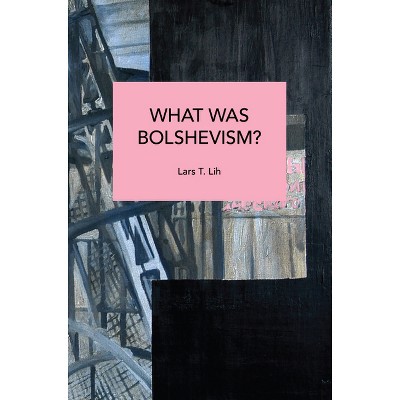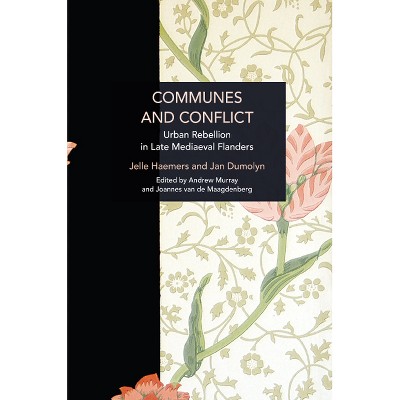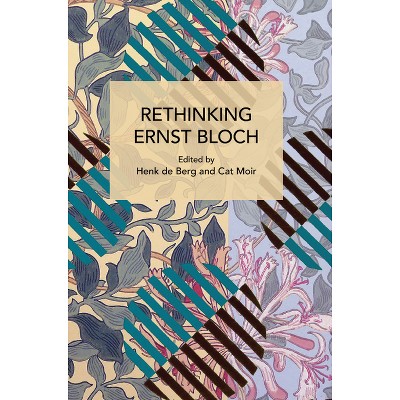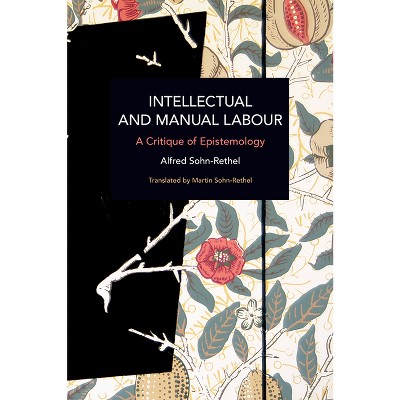Persistent Inequalities - (Historical Materialism) by Howard Botwinick (Paperback)

About this item
Highlights
- Botwinick provocatively shows that competition and technical change often militate against wage equalization, and calls for militant union organization that can once again take wages and working conditions out of capitalist competition.
- About the Author: Howard Botwinick, Ph.D. (1985) New School for Social Research, is Associate Professor of Economics at SUNY Cortland.
- 390 Pages
- Political Science, Labor & Industrial Relations
- Series Name: Historical Materialism
Description
About the Book
Botwinick provocatively shows that competition and technical change often militate against wage equalization, and calls for militant union organization that can once again take wages and working conditions out of capitalist competition.
Book Synopsis
Botwinick provocatively shows that competition and technical change often militate against wage equalization, and calls for militant union organization that can once again take wages and working conditions out of capitalist competition.
Review Quotes
"Persistent Inequalities makes a major contribution to economic theory, bringing together a number of existing analytical elements and forging them into a coherent, logical analysis. Further, it includes important innovations. The analytical strength of the book lies in its use of competition as the explanatory mechanism for wage differential [...] It offers an exciting and stimulating explanation of a real-world phenomenon and its social implications."
--John Weeks, University of London, Center for Development Studies, School of Oriental and African Studies
"Today employers cite 'competitiveness' as the reason for cutting wages and benefits and imposing new forms of speed-up. Good jobs are replaced by technology, on the one hand, and subcontracted, substandard jobs, on the other, as capital rushes to cut labor costs. The result is both a general decline in U.S. real wages, now below their 1973 level, and greater inequalities among workers. Persistent Inequalities gives us a contemporary Marxist analysis of wage and income differentials in the labor force - one that is based on the actual dynamics of capitalist competition. Because of this, economist Howard Botwinick, particularly in his conception of the 'regulating capital, ' has given us a prism through which to craft strategies to end the very decline and inequality he explains."
--Kim Moody, author of An Injury to All: The Decline of American Unionism and US Labor in Trouble and Transition
"Botwinick's scholarship is first-rate. His main objective is to reconstruct the explanation for interindustry and intraindustry wage differentials on the basis of the perspective of classical political economy and classical Marxism, rather than orthodox (neoclassical) economics. An important thrust of the book is the argument that the orthodox perspective, particularly in its human capital variant, fails to explain not only differences in earnings across occupations but also differences between persons who may differ ascriptively by race or by gender. The failure is due to the orthodox theory's invalid characterization of competition. The author demonstrates that the classical perspective can be utilized to provide a much richer and persuasive theory of wage differences [...] This work is certainly a significant contribution both to the theory of income distribution and to the theory of industrial organization in economics. In addition, the author explains difficult technical issues in an accessible fashion."
--William, Darity, Jr, University of North Carolina
"Labor organizer turned economist, Howard Botwinick, has written a seminal book in labor economics. Drawing upon the theoretical work of his teacher, Anwar Shaikh of the New School for Social Research, Botwinick in Persistent Inequalities has built what has eluded radical economists, namely, a fully determinate model of labor markets [...] The beauty of Botwinick's analysis is that, while class struggle enters into wage determination, wage rates are not completely indeterminate. There are concrete limits to wage increases [...] Botwinick's work has important implications for the labor movement. At any given time, there will be excellent organizing opportunities. Many of our service industries today are likely to be regulating capitals, and, therefore, good targets for unionization [...] So are low-wage workers in highly capitalized industries [...]"
--Michael Yates, author of Why Unions Matter, in Monthly Review, February 1996
About the Author
Howard Botwinick, Ph.D. (1985) New School for Social Research, is Associate Professor of Economics at SUNY Cortland. He has been active in several unions and was a founding member of the U.S. Labor Party in the 1990s.
Shipping details
Return details
Trending Non-Fiction











